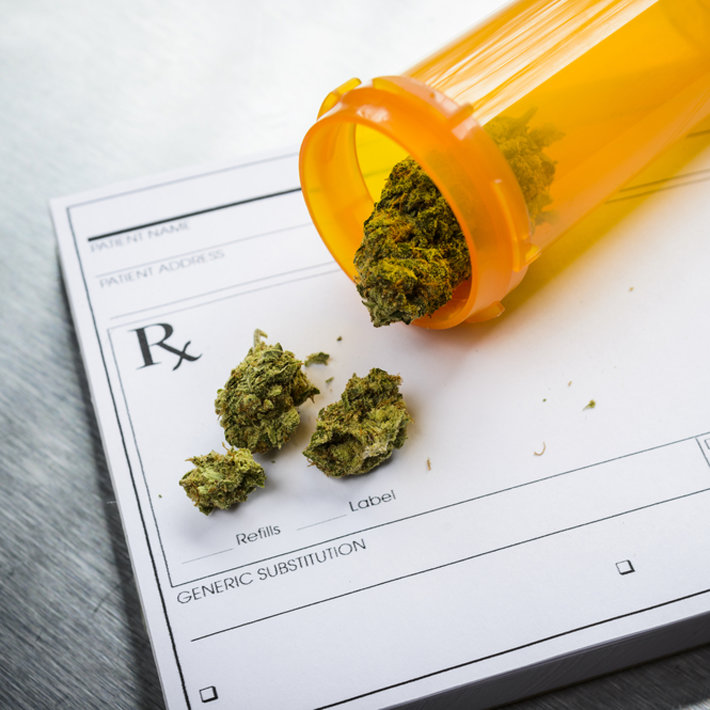Should Medical Schools Teach Doctors about Addiction?

In a nation stuck in its worst addiction epidemic yet, one would think that our medical professionals would be fully prepared to help addicted patients. But quite the opposite is true. In fact, according to Jan Hoffman’s paper for CNBC, only about 15 out of 180 medical programs in the U.S. teach their medical students about addiction to alcohol, drugs, or tobacco. And even in those circumstances, the level of education on addiction comes down to one seminar or a lecture here or there, sporadically placed throughout the semester. Not what I would call a comprehensive education.
A Severe Lack of Addiction Education in General Medicine

There are hundreds of medical fellowships covering all areas of medicine. Almost 200 schools within the U.S. teach medicine. However, until recently none of these fellowships or schools specialized in Addiction Medicine. for those of you wondering exactly what a fellowship is, it’s usually affiliated with the specialty a doctor chooses to focus on. This means that out of the hundreds of specialties, addiction was rarely, if ever, included.
And even though some schools are making efforts to incorporate courses on addiction, it’s tough to fit such courses into an already busy curriculum. This is especially complicated because addiction medicine is a young field. There are not a lot of experts on the subject. Usually, if a school wanted to bring a new area of study into their curriculum, they would do so by recruiting experts in the field to come in and teach on that subject. But because there are so few addiction experts practicing their craft, there is a severe shortage of experts who can pass on their knowledge to the “next generation”, one could say.
Dr. Daniel Alford commented on the struggles of operating addiction medicine courses when there is such a lack of qualified experts in the field. The doctor is a professor and associate dean at Boston University, and he also played a significant role in the new addiction medicine program at Boston University (more on that later). Dr. Alford said, “The biggest challenge now is how do you sustain it? Who keeps updating it? When faculty leave, who will replace them?”
And he’s right. The medical industry is having a hard time breaking out into addiction medicine. Once the ball is rolling, it will keep rolling. But it has to get rolling first.
The University of Massachusetts Medical School Sets the Bar

In November of 2015, the University of Massachusetts Medical School became one of the first medical schools in the history of the U.S to add opioid abuse and dependence courses to their curriculum. And it was a mandatory addition to the curriculum—a massive move in the right direction.
And it gets better. After the University of Massachusetts Medical School made their decision to implement opioid dependence training in their curriculum, four other schools in Massachusetts agreed to jump on board and create similar programs of their own, with Boston University being one of them. Massachusetts had been hit pretty hard by the opioid crisis for years leading up to this change. The schools felt a curriculum addition was the right thing to do to prepare new doctors for the opioid crisis.
The program is called “Opioid and Safe Prescribing Training Immersion.” And what does the curriculum consist of? It’s a several-part course teaching “core competencies” that doctors need to have when addressing an opioid patient. Medical students will have to learn about things such as:
- Assessing the risk of addiction to painkillers.
- Evaluating and determining the level of pain in each patient.
- Exploring other avenues of pain relief.
- Developing ween-down and discontinuation plans for opioid treatment.
- How to tell when a patient is doctor shopping.
- When to recommend alternatives to pain relievers.
- How to know what kind of pain relievers to prescribe for specific scenarios.
- How to understand behavior change in patients which indicate developing addiction.
These are just a few of the subsets of the curriculum. The goal is to prepare doctors for the real world, where doctors stand right on the front line of the opioid addiction epidemic. Doctors have to know how to tell the difference between a legitimate pain patient and an addict, and they have to prevent their pain patients from becoming addicts.
The curriculum takes the “Immersion” part of the title seriously. Med students will go through extremely life-like simulations where they have to perform opioid prescribing practices first on lifelike mannequins, and then on professional actors who play the part of patients. Med students also learn how to administer naloxone, the opioid overdose reversal medicine. Other parts of the training include patient education, prescription planning, and drug testing.
For more information on the University of Massachusetts Medical School and their program, check out this article in The Boston Globe.
More Work Needed
The lack of addiction education in medical schools was and is a big problem. But it’s changing. It’s getting better. More schools are recognizing the need, and more doctors are showing interest in getting involved. It’s more common to hear heartwarming stories about doctors helping addicts, like this one from Dr. Buchheit; “I enjoy working with these patients. They have often been kicked to the curb by the formal medical system. They don’t trust us. So for them to walk into a room and have a doctor say, ’It’s great to see you, thank you for coming in,’ is very powerful. And then you can see them get better with treatment. It can be very rewarding work.”
The concern is not that these evolutions are not happening, it’s that these evolutions are not happening fast enough. Dozens of people die from drug overdoses in the U.S. every day. A lot of them are patients who overdosed on the very medications that their doctors were prescribing them. That has to stop. We’re going in the right direction by getting doctors the education they need. It just needs to happen a lot faster.
Sources:
- https://www.cnbc.com/2018/09/10/most-doctors-are-ill-equipped-to-deal-with-the-opioid-epidemic.html
- https://www.bostonglobe.com/metro/2015/11/15/umass-medical-school-starts-training-preventing-treating-opioid-addiction/sJsCTIcSJuOvWe1xyWTJ8M/story.html
Reviewed and Edited by Claire Pinelli, ICAADC, CCS, LADC, RAS, MCAP


